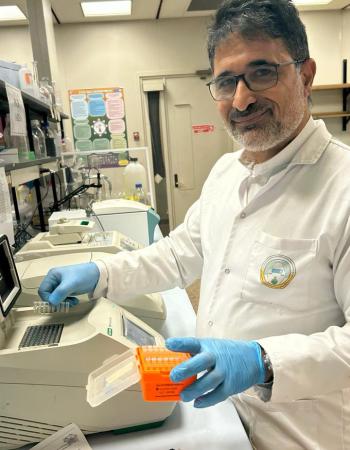Association SOD2 and PON1 gene polymorphisms with polycystic ovary syndrome (PCOS) in Saudi women
Abstract
Polycystic ovary syndrome (PCOS) is a considered one of the most common female disorders associated with reproductive, metabolic, and psychological problems. The etiology of PCOS is still not yet disclosed; however, evidence for a genetic basis has been reported. In this study, we investigate the associations between superoxide dismutase 2 (SOD2) (rs4880) and paraoxonase 1 (PON1) (rs705379) polymorphisms in PCOS in Saudi women. The study included 99 females with PCOS and 98 healthy women as a control. Single nucleotide polymorphisms (SNPs) of promoter regions were determined using TaqMan genotyping assays. Regarding the polymorphism at SOD2 (rs4880), the CC, CT, and TT genotypes were present at rates of 32, 61, and 7% in PCOS patients, and 47, 43, and 10% in controls, respectively. The frequency of the CT genotype in PCOS patients (0.61) was significantly higher than in controls (0.43) (OR = 2.05, CI: 1.16–3.61; p = 0.015). The wild homozygous genotype (CC) with the phenotype alanine appears to confer protection against the disease compared to molecules sharing at least one valine (genotypes, CT + TT). Regarding the polymorphism at PON1 (rs705379), the rates of CC, CT, and TT genotypes were 34, 50, and 16% in PCOS patients and 33, 63, and 2% in controls, respectively. The rate of the TT genotype in PCOS patients was significantly higher than that in controls (p = 0.0058). SOD2 and PON1 polymorphisms may be genetic factors that affect the occurrence of PCOS in Saudi females.

Abstract
Purpose

Abstract
Purpose

Abstract

